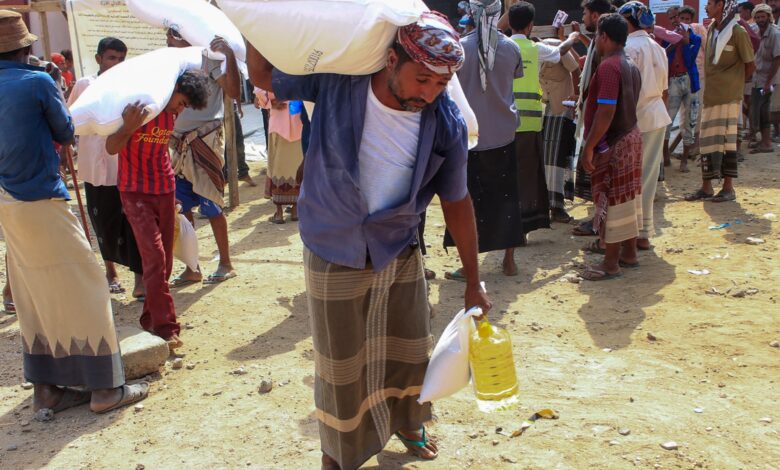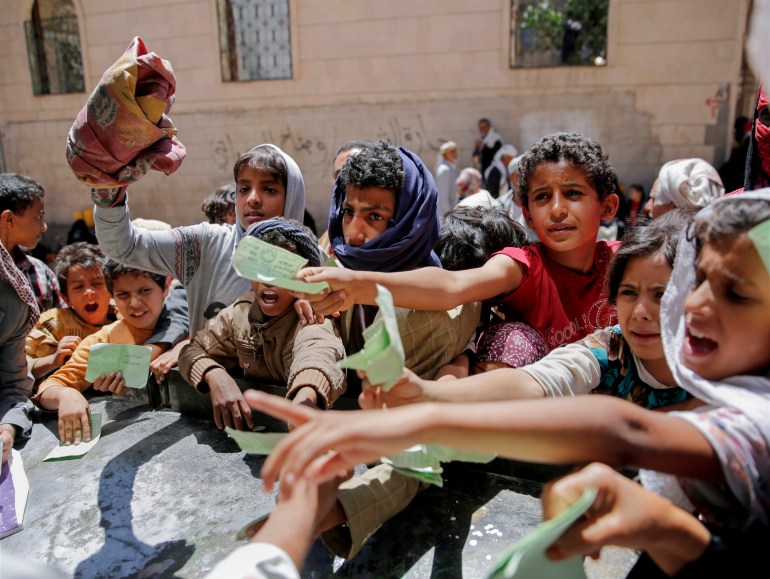WFP suspends food distribution in Houthi-controlled areas of Yemen

UN agency pauses general food distribution in north Yemen due to limited funding and disagreements with the group.
The World Food Programme (WFP) says it is suspending food distribution in Houthi-controlled areas of northern Yemen due to a dip in funding and disagreements with the group over how to focus on the poorest there.
The WFP announced the decision on Tuesday, saying it came after consultations with donors and more than a year of negotiations which failed to come to an agreement on reducing the number of people in need of aid to 6.5 million from 9.5 million.
The poorest country in the Arabian Peninsula has faced one of the world’s worst humanitarian crises since the outbreak of the Yemen war between the Saudi-backed government and the Iran-aligned Houthi rebels, who seized the capital Sanaa and large swaths of territory in 2014.

Food stocks in Houthi-controlled areas “are now almost completely depleted and resuming food assistance, even with an immediate agreement, could take up to as long as four months due to the disruption of the supply chain”, the United Nations agency said in a statement.
It said the WFP would nonetheless maintain “its resilience and livelihoods, nutrition, and school feeding programmes … for as long as the agency has sufficient funding and the cooperation of the authorities” in Sanaa.
Food distribution in government-controlled areas of Yemen will continue, targeting “the most vulnerable families, aligning with resource adjustments announced last August,” the statement said.
Houthi officials did not issue an immediate comment on the agency’s decision.
Since 2014, the war in the country of 30 million people has led directly or indirectly to hundreds of thousands of deaths and has displaced millions.
A fragile calm has prevailed since a UN-negotiated ceasefire in April 2022, but the population suffers from reduced humanitarian aid, upon which it depends heavily.
Last year, the WFP reduced rations in the country due to depleted funding caused by global inflation, which rose after Russia’s invasion of Ukraine.
Source
:
Al Jazeera and news agencies



